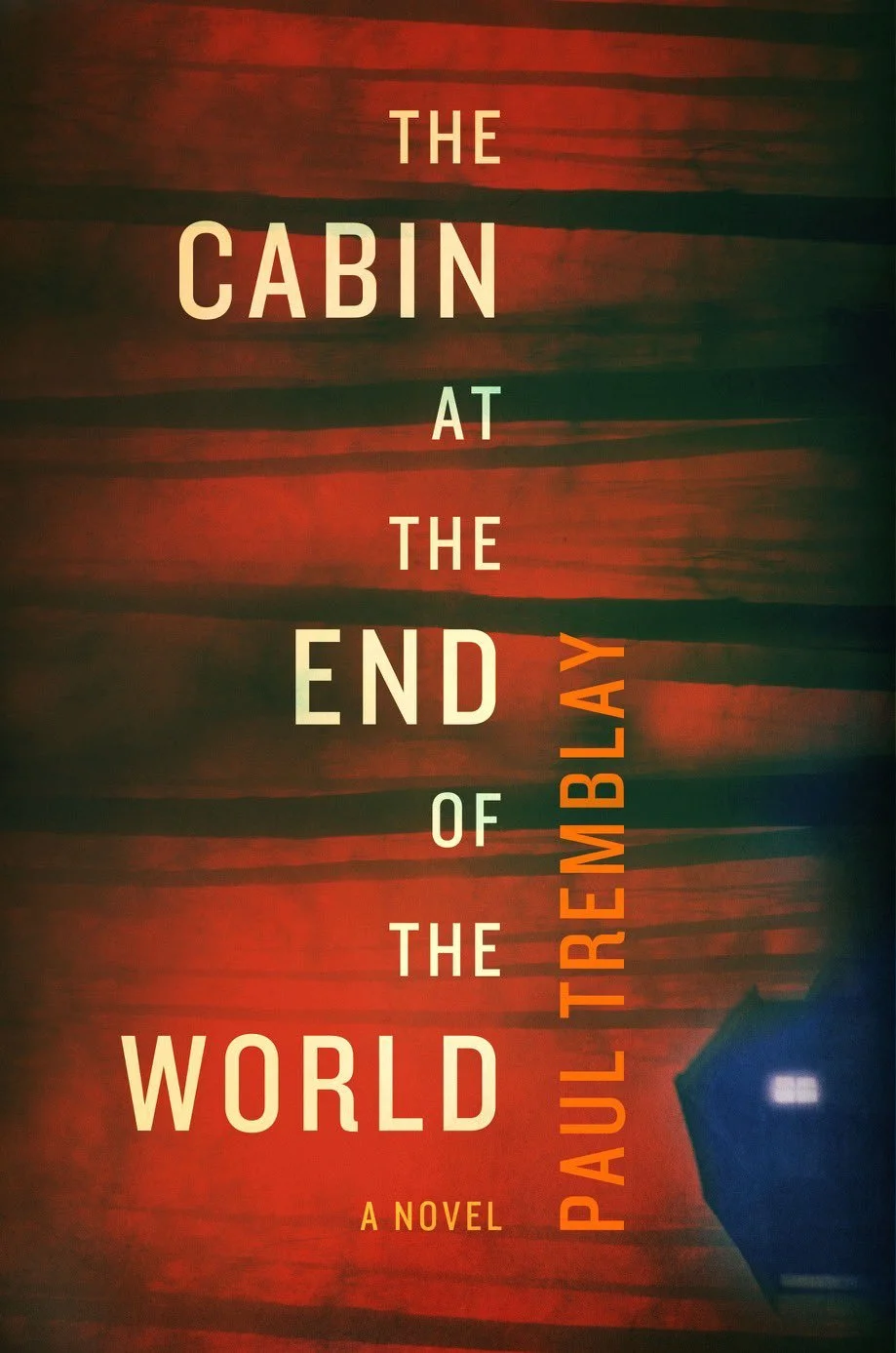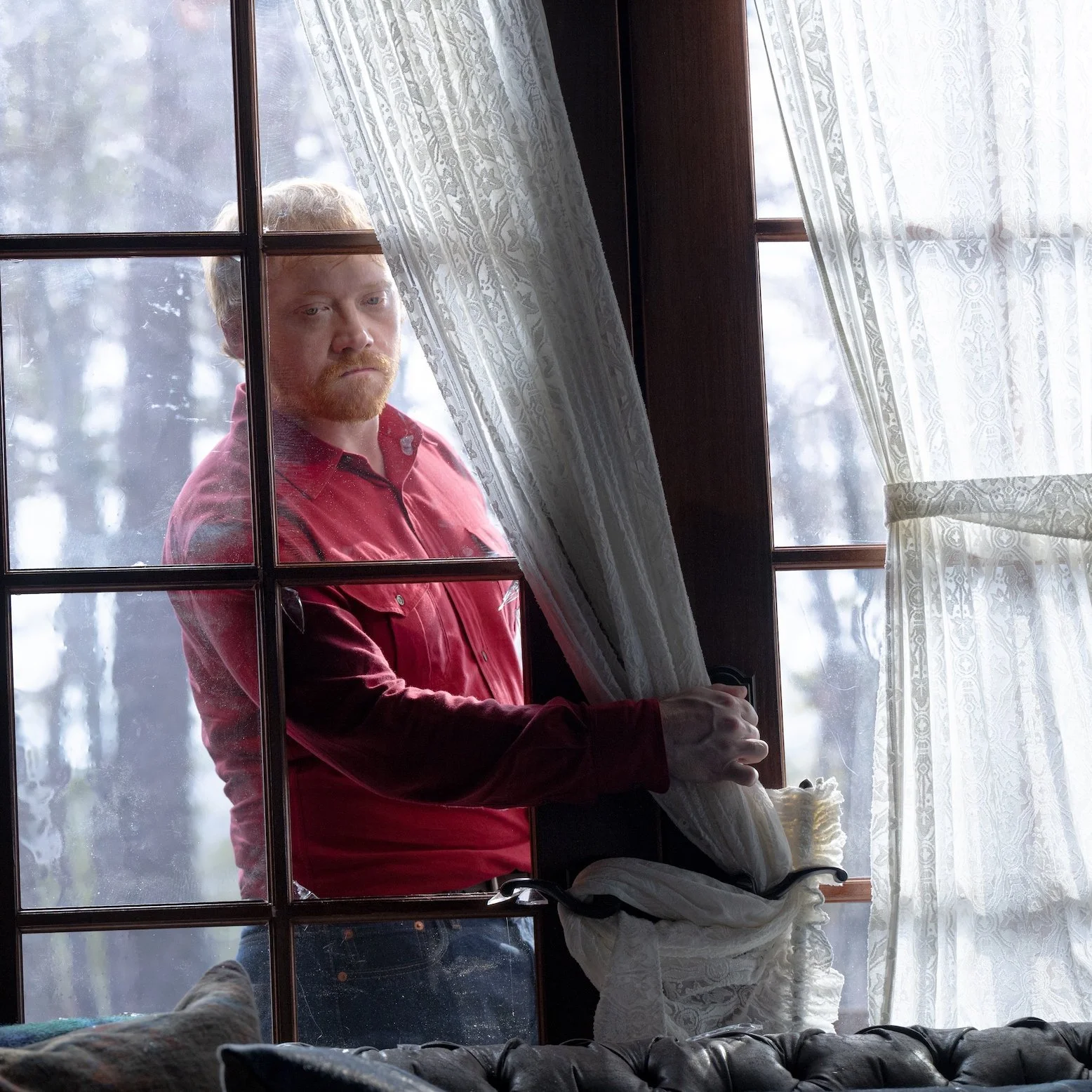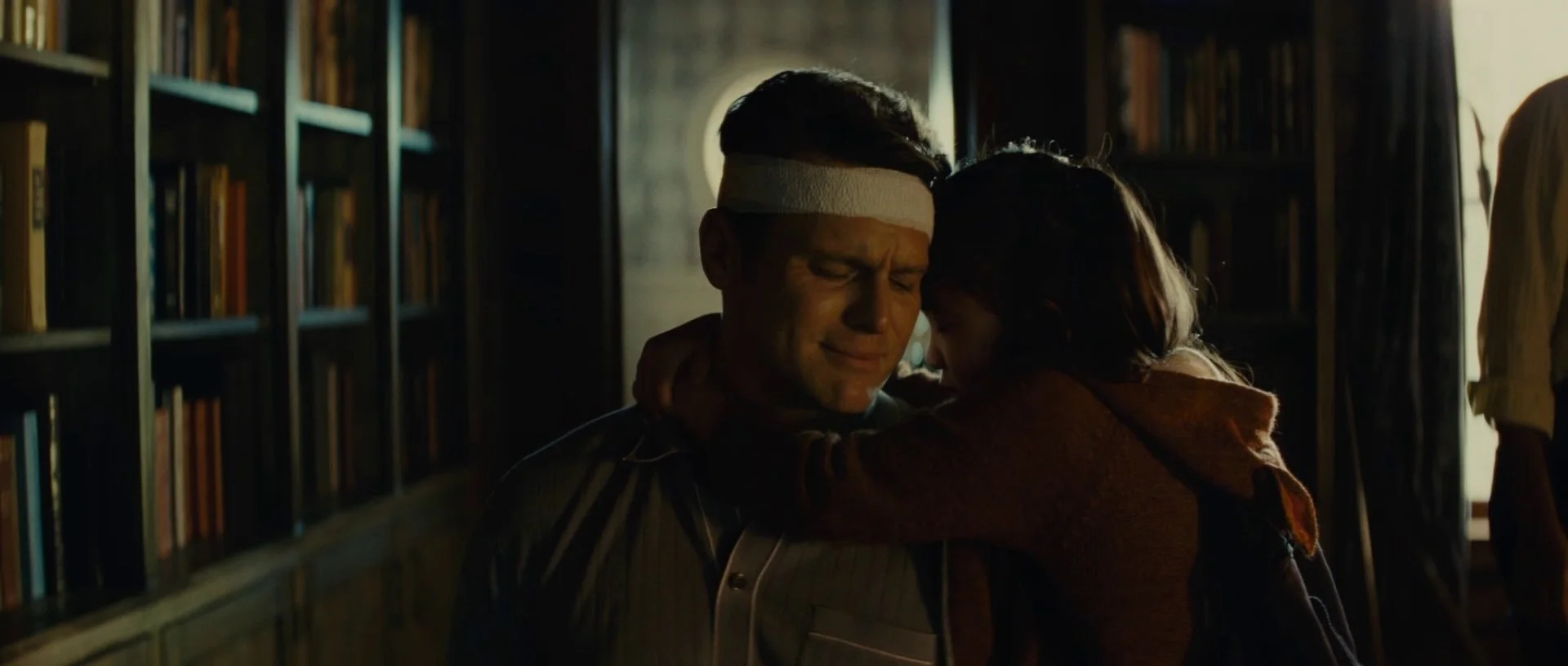“That’s Not Who We Are:” Casual Homophobia and Queer Sacrifice in Knock at the Cabin
This article contains substantial spoilers for both the novel The Cabin at the End of the World and its film adaptation, Knock at the Cabin.
There’s a moment in the introduction of Paul Tremblay’s 2018 novel The Cabin at the End of the World where Wen, the adopted daughter of Eric and Andrew, thinks about her fathers’ response to a boy at school calling them “fags.” Her dads, we’re told, explained to the young girl that some people would say ignorant and hurtful things because of what they’ve been taught by others with hate in their hearts. And while Wen initially thought of these ignorant, hate-filled people as the kind of “stranger-danger people” she’s been warned to stay away from, she has started to realize that “they were talking about everyday kind of people. Weren’t the three of them everyday kind of people?”
The conflict between “everydayness” and otherness is at the heart of Tremblay’s novel, which centers around Eric, Andrew, and Wen being terrorized by four strangers—Leonard, Sabrina, Redmond, and Adriane—wielding strange weapons who show up at the secluded cabin where the family is vacationing. After breaking in and tying up the couple, the strangers explain that they have received visions of the apocalypse and are here to try and prevent it, but that this can only happen if the family is willing to make a terrible sacrifice. One of them must be killed by the others to stave off the end of the world.
This basic premise is retained in M. Night Shyamalan’s 2023 adaptation of the novel, but the nuance of the central theme is not. Because while Shyamalan’s film (retitled Knock at the Cabin and co-written by Shyamalan, Steve Desmond, and Michael Sherman), like the novel, toys with the idea that homophobia played a part in the choice of the sacrifice, the ultimate validity of the sacrifice goes largely unquestioned.
In both versions of the story, it is heavily implied that the family was not selected purely at random. One of the intruders, Redmond (played in the film by Rupert Grint), is suggested to have steered his fellow crusaders toward this particular cabin because he knew the couple—or, specifically, Andrew (Ben Aldridge)—would be there. You see, years prior, Andrew survived a violent homophobic attack in a bar, and he believes that Redmond is really the attacker, O’Bannon, who served jail time for the assault and is now seeking some sick revenge.
While the film definitively confirms that Redmond is indeed O’Bannon, the novel instead suggests that it doesn’t really matter. Before becoming convinced of the man’s true identity, Andrew reflects that Redmond “looks and sounds like so many of the hate-filled, ignorant cavemen he’s had to deal with his whole life… This Redmond might as well be a cipher, a stand-in, a representative for all of them.” Redmond, regardless of who is really is, represents the them to which Andrew and Eric are the other. And it’s because of this distinction—because of his own otherness—that Andrew has already had to make painful sacrifices, despite his partner’s assertion that “Andrew hasn’t surrendered to anyone or anything in his life.” Andrew has knowingly had to sacrifice core aspects of his own identity by engaging in code-switching to stay safe, and he hates it:
“Whenever Andrew is in a public place he is aware of their eyes and ears. That he is made to feel like he needs to make accommodations or adjustments to how he acts, to who he is, in order to be left alone, to be safe, fills him with shame, guilt, fear, and anger.”
It’s notable that the exact circumstances of the earlier attack against Andrew are different in the book than they are on screen. In the film, Andrew is on a date with a man when O’Bannon rudely engages with him before smashing a beer bottle over his head. In the novel, Andrew is talking with a straight friend, Ritchie, and a drunk woman they’ve just met when O’Bannon, a man he has never spoken to before, calls him a “faggot” and hits him with the bottle. Both attacks are horrific and unforgivable, but what makes the violence in the novel especially uncomfortable is Andrew’s realization that no amount of code-switching can keep him safe. He wears his otherness like a brand, and as such, some people will automatically single him and others like him out as victims:
“As galling as Andrew’s being somehow read and then classified by that fucking loser as an other, a thing, was that Andrew, at least for one night, was then marked as a victim.”
Despite the film’s reveal of Redmond’s true identity, both versions of the story leave it disquietingly ambiguous whether or not the choice of sacrificial lambs was pure coincidence or not. What’s important is the other intruders’ reaction to the implication that the sacrifice may be fueled by homophobia. “That’s not us, that’s not who we are,” Leonard (played in the film by Dave Bautista) assures the couple, to which Sabrina (Nikki Amuka-Bird) and Adriane (Abby Quinn) vehemently agree. But this statement rings hollow, especially when we learn that the O’Bannon of the book used almost the exact same phrase at his trial, claiming repeatedly that the homophobic attack against Andrew “wasn’t him, wasn’t who he was.”
Does it matter who a person says they are if they are showing you who they are? Leonard, Sabrina, and Adriane may not consider themselves to be homophobic, but they allow Redmond to steer them toward their victims, only having visions of the exact cabin after Redmond tells them where the sacrifice will take place. If Redmond’s own motives are patently homophobic, then the others are participating in a homophobic attack by default.
But, Knock at the Cabin would argue, this homophobia is irrelevant because someone needs to make a sacrifice to save the world, regardless of their sexuality. This is where the concept of “everydayness” comes into play again in the novel.
When they first break into the cabin, Leonard describes himself and his fellow intruders as “regular, everyday people… regular just like you,” prompting Andrew to think about how many everyday people have “committed atrocities in the name of their self-proclaimed everydayness.” One such person is Redmond, who laughs at Leonard’s description. He doesn’t consider the couple to be regular. To him, Eric and Andrew will always be the others that are different from—separate from—the “everyday” people he considers himself part of.
Leonard inadvertently makes the same point when he tells Wen, an outsider herself because of her immigrant status and the scar left from her cleft palate repair, that “This isn’t about you. It’s about everyone.” The family has always been othered. They have always stood separate from “everyone” and now they’re being asked to sacrifice their own existence for those people. Regardless of who is chosen for the sacrifice, it will still mark the destruction of their happy little family unit. Their queer family unit that many people will be glad to see torn apart.
The Eric and Andrew of Knock at the Cabin agree to let this happen. A badly wounded Eric (Jonathan Groff) convinces Andrew to kill him and have a wonderful life with Wen (Kristen Cui), but not before giving a speech about how their love is so pure that their sacrifice will save all of humanity. Andrew and Wen then drive to a diner where a tearful woman calls her family, grateful that the apocalyptic events of the day seem to have screeched to a halt. We’re left to think about what a good thing Eric and Andrew did for all those other families as the credits roll.
This ending implicitly endorses the idea that the couple made the right decision. In Tremblay’s novel, the question of righteousness is a little more complicated. Wen doesn’t leave the cabin alive; she’s shot and killed during a scuffle between Leonard and Andrew. But her death, an accident, isn’t considered enough of a willing sacrifice to count; Leonard tells the couple that one of them must now kill the other and be left all alone.
The cruelty of this decision and the meaninglessness of Wen’s death cause Sabrina to question why they are kowtowing to the demands of a god that would let this happen, saying “Maybe the world should end if any small part of it was made to be like this.” When she asks Leonard “What kind of god or universe or whatever wants this, demands this?” his only response is “The one we have.”
As Wen tells Leonard before her death, “Your god is a killer.” Despite Eric’s “cautious Catholic” leanings, the Eric and Andrew of The Cabin at the End of the World refuse to bend a knee to a god that would allow a little girl to die for nothing and a queer couple to be torn apart for merely existing happily with their daughter. In a moment of queer defiance, of refusing to sacrifice any more for a world that singles them out as the others, the things, the obvious victims, they take Wen’s body and leave the cabin to face whatever comes next, together.
Knock at the Cabin isn’t a terrible movie, and it’s nice to see more positive portrayals of queer characters in popular media, especially in leading roles. But the writers’ choice to change Tremblay’s powerful ending leaves the film tacitly endorsing the idea of sacrificing the other for the “regular” folks. Eric’s decision to sacrifice himself might have been brave and good and kind and saintly. It might even have been righteous.
But Andrew’s anger was righteous, too.




